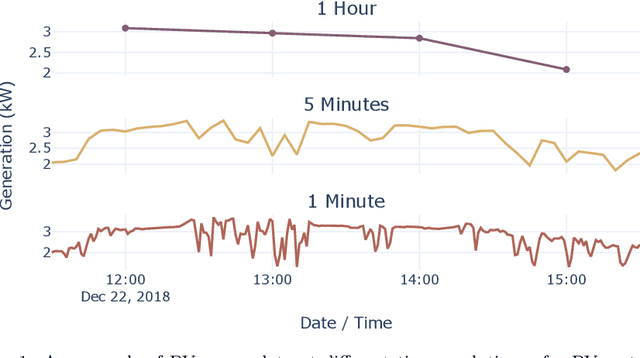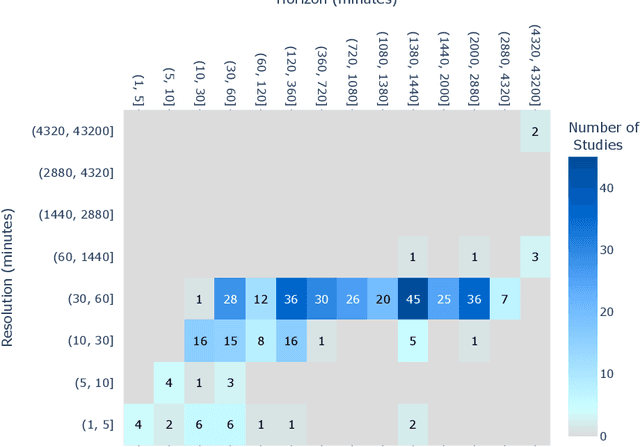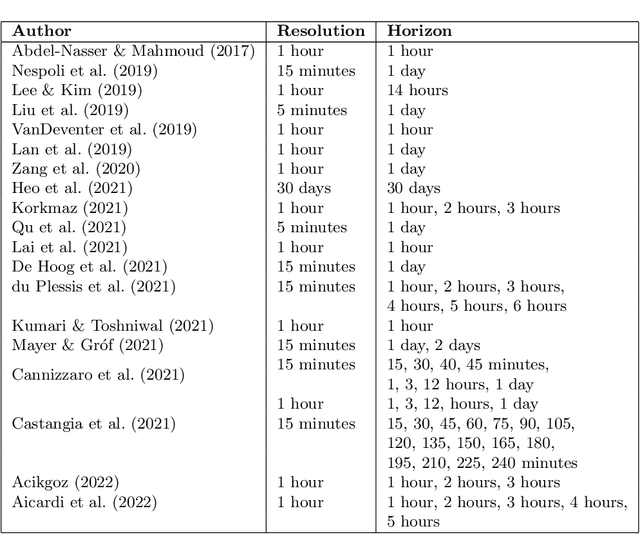Multi-Resolution, Multi-Horizon Distributed Solar PV Power Forecasting with Forecast Combinations
Paper and Code
Jun 22, 2022



Distributed, small-scale solar photovoltaic (PV) systems are being installed at a rapidly increasing rate. This can cause major impacts on distribution networks and energy markets. As a result, there is a significant need for improved forecasting of the power generation of these systems at different time resolutions and horizons. However, the performance of forecasting models depends on the resolution and horizon. Forecast combinations (ensembles), that combine the forecasts of multiple models into a single forecast may be robust in such cases. Therefore, in this paper, we provide comparisons and insights into the performance of five state-of-the-art forecast models and existing forecast combinations at multiple resolutions and horizons. We propose a forecast combination approach based on particle swarm optimization (PSO) that will enable a forecaster to produce accurate forecasts for the task at hand by weighting the forecasts produced by individual models. Furthermore, we compare the performance of the proposed combination approach with existing forecast combination approaches. A comprehensive evaluation is conducted using a real-world residential PV power data set measured at 25 houses located in three locations in the United States. The results across four different resolutions and four different horizons show that the PSO-based forecast combination approach outperforms the use of any individual forecast model and other forecast combination counterparts, with an average Mean Absolute Scaled Error reduction by 3.81% compared to the best performing individual model. Our approach enables a solar forecaster to produce accurate forecasts for their application regardless of the forecast resolution or horizon.
 Add to Chrome
Add to Chrome Add to Firefox
Add to Firefox Add to Edge
Add to Edge